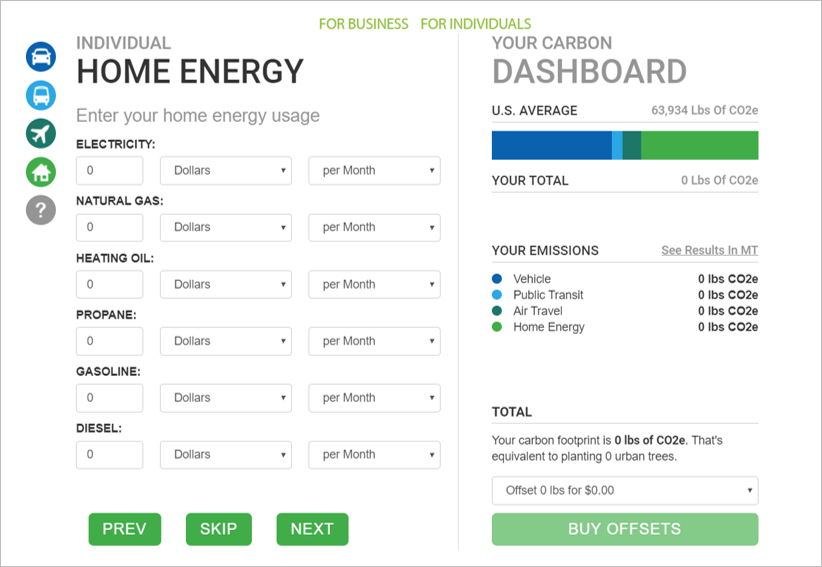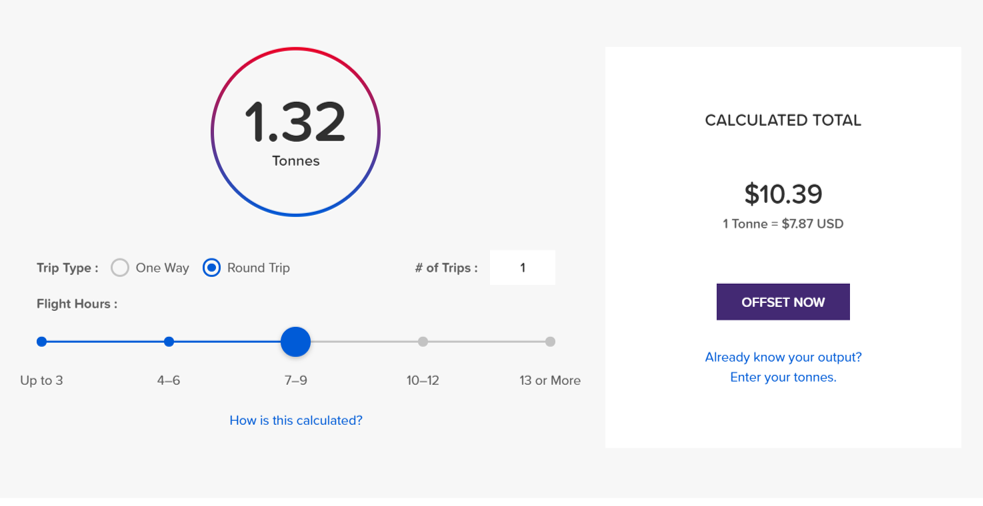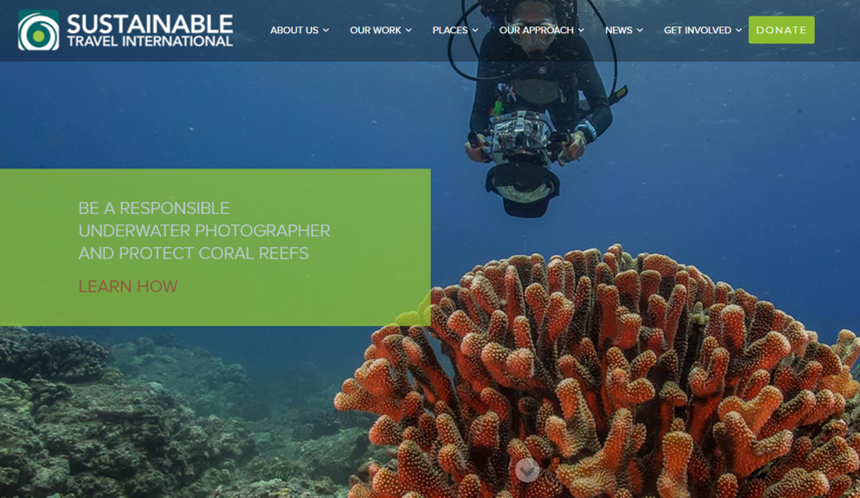I found myself asking this very question recently when I realized I could potentially “offset” my carbon footprint from a busy year of traveling internationally in 2019. I felt guilty about our air travel and was intrigued that there was potentially something I could do to make up for it, through the purchasing of something called carbon offsets.
I’ll admit I wasn’t really aware if carbon offsets were actually “legit” or even worked at all until I spent longer than I’d like to admit on the research. I was intrigued by what I found and wanted to share what I learned for those of you interested in offsetting some of your carbon emissions.
What are Carbon Offsets?
Carbon offsets are simply “Reductions in greenhouse gas emissions to the atmosphere (Duke Office of Sustainability).” These can be generated in multiple ways, including (but not limited to):
- Planting trees
- Capturing and burning methane before it enters the atmosphere
- Improving energy efficiency
- Reducing energy use
When someone purchases one carbon offset from a company, the company then removes one metric ton of CO2 per offset purchased, through a specific project that reduces greenhouse gas levels.
Carbon offset projects can include environmental education, updating power plants and factories, or increasing energy efficiency of buildings and transportation (HowStuffWorks).
Anyone who wants to can buy carbon offsets. Along with companies buying them to go carbon neutral, they’re becoming more popular for individuals as well. Travelers (myself included) are jumping on board, along with people getting married buying offsets to reduce the huge footprint caused by their weddings.
How Much Do Carbon Offsets Cost?
Carbon offset prices can vary depending on the market. According to a carbon market study from the Forest Trend’s Ecosystem Marketplace in 2016, the price of a carbon offset averages at about $3.30 per ton of carbon dioxide equivalent.
To put the numbers into perspective, buying carbon offsets for your individual footprint is much less expensive than you’d think. The New York Times reports that buying offsets to cancel out the emissions from a one-way New York to L.A. flight would only cost around $3.26.
If you want to get really serious about lowering your carbon footprint and buying carbon offsets to cancel out some of your daily life impacts, you can calculate how much you’d want to buy here.


Do Carbon Offsets Actually Lower Your Carbon Footprint?
Carbon offsets do help to offset business’ and individuals’ carbon impact when carried out through a reputable company and through effective projects.
Unfortunately, there are some less than reputable carbon offset companies that are committing fraudulent practices. With fraud out there, it can be hard to monitor where your money is actually going.
That being said, if you do opt for buying carbon offsets, you’ll want to be sure the company is verified by third-party certification programs such as Verified Carbon Standard, Gold Standard, or Green-e Climate Standard (Yale Climate Connections).
And while these offsets do help, they still aren’t a cure-all to global warming and should not be used as an excuse to totally disregard the environment or avoid making other eco-positive changes altogether.
Who are the Best Carbon Offset Providers?
If you’re on board with buying carbon offsets, not all companies are created equal, as mentioned above.
The following companies (and their projects) have been verified by at least one independent third-party organization, making them good bets when opting to purchase your own carbon offsets:
1. TerraPass
TerraPass is a U.S. based carbon offset company that is one of the more well-known. They publish their third-party verification portfolio yearly, and are verified by Green-e Energy. If you want something different than carbon offsets, Terrapass also gives you the option to buy renewable energy credits or BEF water restoration certificates instead.
Another benefit is that TerraPass has their own carbon calculator that makes it really easy to decide how many offsets you’d like to get. They also offer monthly subscriptions if you want to continue to contribute without having to think about it.
2. Cool Effect
Cool Effect is a registered 501(c)3 non-profit with a focus on reducing carbon emissions through a variety of carbon-lowering projects. Each project is verified by at least one of the following agencies: Gold Standard, the Verified Carbon Standard, the Climate Action Reserve, the American Carbon Registry, or the United Nations’ Clean Development Mechanism.


After verification, each project then requires two independent Technical Advisory Committees to ensure the projects are scientifically and financially strong.
Cool Effect’s website is also very transparent on where your carbon offset funds or donations go, with more than 90% of funds going directly to their carbon-lowering projects. Another bonus of working with Cool Effect is that you can choose which carbon-reducing project you’d like your funds to go to.
3. Atmosfair
Atmosfair is a German non-profit organization with an emphasis on air travel that “actively contributes to CO₂ mitigation by promoting, developing, and financing renewable energies in over 15 countries worldwide.”
Atmosfair’s carbon offsetting projects are registered with the United Nations as Clean Development Mechanisms (CDM) as well as registered by the Gold Standard. Atmosfair projects include energy efficiency, renewable energies and environmental education.
Along with offset and donation options, Atmosfair also ranks the 190 largest airlines annually based on their climate efficiency to help you make the most sustainable choice when you do need to travel.
4. Sustainable Travel International
Sustainable Travel International is a non-profit carbon offset company with an emphasis on reducing the traveler’s carbon footprint. Their mission is “to protect and conserve our planet’s most vulnerable destinations by transforming tourism’s impact on nature and communities.” They aim to work “towards a future where travel is beneficial for people and places around the world” through sustainable tourism initiatives and projects.


They report that tourism is responsible for about 8% of the world’s carbon emissions, so it makes sense for travelers to consider offsetting their higher footprint.
Sustainable Travel International’s carbon offsetting projects are all verified by at least one of these third-parties: The CDM Gold Standard, The Verified Carbon Standard, Climate, Community, and Biodiversity Alliance, Plan Vivo, Climate Action Reserve, or the American Carbon Registry.
There are surely other reputable carbon offset providers that are not mentioned on this list, so if you find a different one, just be sure to spend a little extra time ensuring they’ve been verified by at least one reliable third party before you invest.
Are There Alternatives to Carbon Offsets?
One downside to relying solely on buying carbon offsets to reduce one’s carbon footprint is that it can lead to people not taking responsibility for their everyday actions. In fact, this behavior has been more broadly studied and has even been given an interesting term: moral licensing.
“Moral licensing theory posits that individuals who initially behave morally may later display behaviors that are immoral, unethical, or otherwise problematic.” (Lasarov, Hoffman).
According to Grist, companies are also a major culprit of misuse. Critics of carbon offsets worry that companies will just purchase carbon offsets as part of a marketing campaign while continuing to practice climate-harming practices.
It’s definitely a step in the right direction that people are buying these offsets to reduce their carbon footprint, but it’s also essential to examine our day to day activities as well.
Doing things like eating less meat and dairy, traveling less, buying less, biking to work, turning off electronics and minimizing single-use product use are other great ways to lower your own personal impact.
If you’re unable to make many of these changes, investing in carbon offsets can still be an overall a positive compared to not doing anything to help mitigate your environmental footprint.
________________
Have you considered buying carbon offsets? If you have purchased them, what company did you choose? Let us know your thoughts and experiences in the comments.














